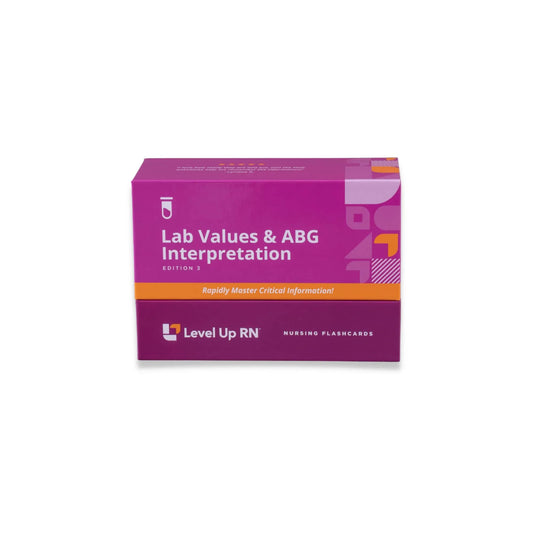Lab Values, part 21: Aspartate Aminotransferase (AST) & Alanine Aminotransferase (ALT)
Aspartate aminotransferase (AST) and alanine aminotransferase (ALT): functions in the body and possible causes of elevated levels.
Quiz Questions
When evaluating liver function, why are elevated ALT levels often considered more specific to liver injury compared to AST levels?
When evaluating liver function, why are elevated ALT levels often considered more specific to liver injury compared to AST levels?
Full Transcript: Lab Values, part 21: Aspartate Aminotransferase (AST) & Alanine Aminotransferase (ALT)
Full Transcript: Lab Values, part 21: Aspartate Aminotransferase (AST) & Alanine Aminotransferase (ALT)
Hi, I'm Meris. And in this video, I'm going to be talking to you about two lab values, aspartate aminotransferase, AST, and alanine aminotransferase, ALT. Let's go ahead and get started.
All right. So first up, we're talking about aspartate aminotransferase, which I will from now on be calling AST. So what is AST? Well, it's an enzyme that is found in the liver. However, it is also found elsewhere in the body, such as in other skeletal muscle tissue and cardiac tissue as well. So it's an enzyme that we use to evaluate the liver, but it can be present in the body for other reasons in other places. So the expected range here is going to be 0 to 35 units per liter. So again, we're expecting to be on the low end of things. I don't expect to see a whole lot of this building up in my patient's system.
Now, what if they come to me with an elevated AST level? What are some possible causes? Well, of course, as this is a liver lab, one of the big ones is going to be liver dysfunction. So liver dysfunction is certainly on the menu. Things such as hepatitis or cirrhosis could be at play or any sort of liver issue that's going on. And it does not have to be chronic. It can be acute as well. And then any other tissue damage in the body, such as to the heart or the skeletal muscle, you will see the AST elevate for this reason. So again, this is a good lab for checking the liver, but it's not the best lab. I want to check another lab called alanine aminotransferase, ALT, which is specific to the liver. So ALT, again, this is an enzyme that is produced by the liver, very important in metabolism, and it's only produced in the liver. So we are not going to see this anywhere else, and we're not going to see it elevated for any other reason than liver problems. So the expected range here is going to be 4 to 36 units per liter, very similar to the other one.
And we do have a cool chicken hint here to remind you. And this should help remind you of the expected range for both since they are pretty similar. But here's our hint. I used to be into alt, alternative music until I got into my late 30s. Now, I'm here to say as somebody who is 36, in her late 30s, I'm still into alternative music, so take that cool chicken with a grain of salt. But that should help you remember that when we get to the late 30s, we are getting past the point of what is considered an expected range for our ALT, in particular, but also for AST.
Now, what are some possible causes of elevation in ALT? Well, again, remember, it's going to be liver dysfunction. So anything going on with liver, hepatitis, cirrhosis, etc., it's very possible that we are going to see an elevation in ALT as well. Super important thing to remember here, big important key point, though, is that ALT is more specific to the liver than AST due to the fact that AST is found elsewhere in the body too.
Now, just one little clinical pearl that I want to give you. When we see somebody coming in who is having an acute issue, such as they are acutely intoxicated on alcohol, in the ER, we will run this panel. We're looking at the liver function. We want to know what's going on. And very commonly, we will see that AST is elevated first and more commonly in that sort of acute intoxication as well. So I had a doctor tell me one time to think of the S in AST as shot, as a shot of alcohol. And that has never left my brain. So just a thing to remember, if you see that AST is really elevated, think about maybe some acute alcohol intoxication.
All right. I'm so glad you stayed until the end because I'm going to test your knowledge of a key fact provided in this video with a quiz question.
When evaluating liver function, why are elevated ALT levels often considered more specific to liver injury compared to AST levels?
ALT is specific to the liver, while AST may be elevated due to damage elsewhere in the body, such as cardiac or skeletal muscle.
All right. That is it for this video. I do hope you learned something. Thanks so much, and happy studying.


